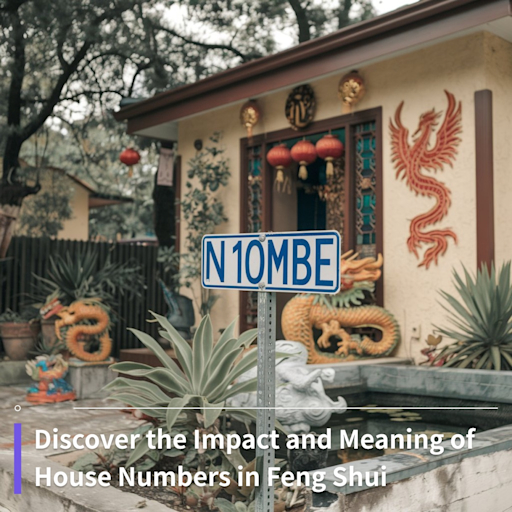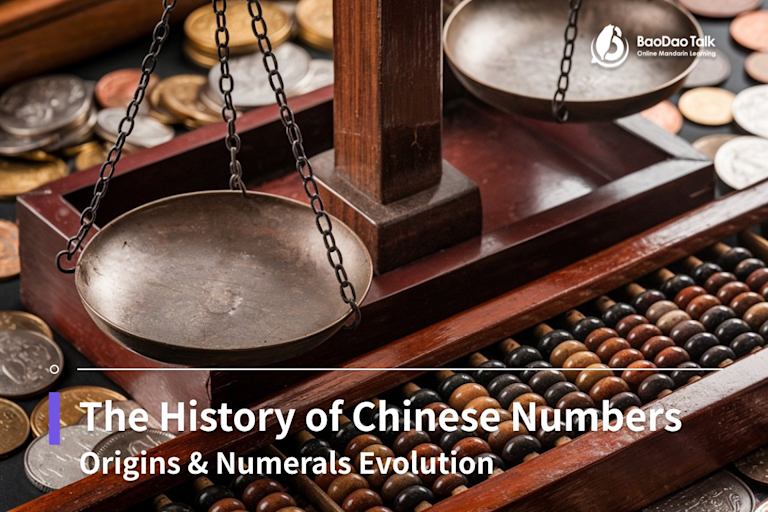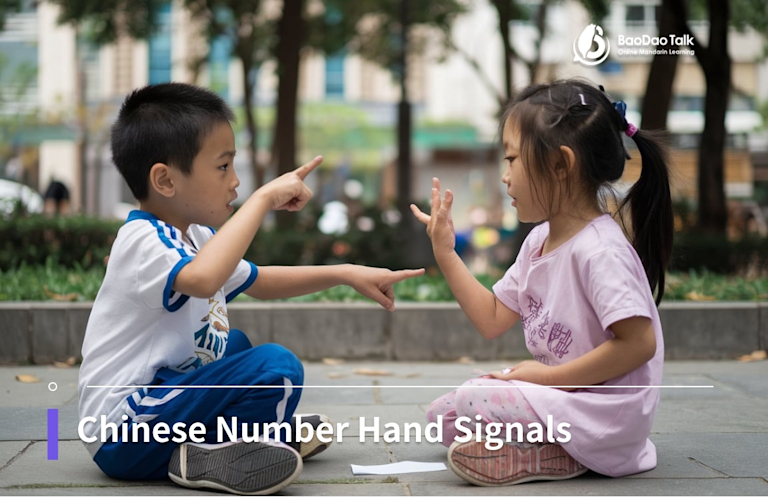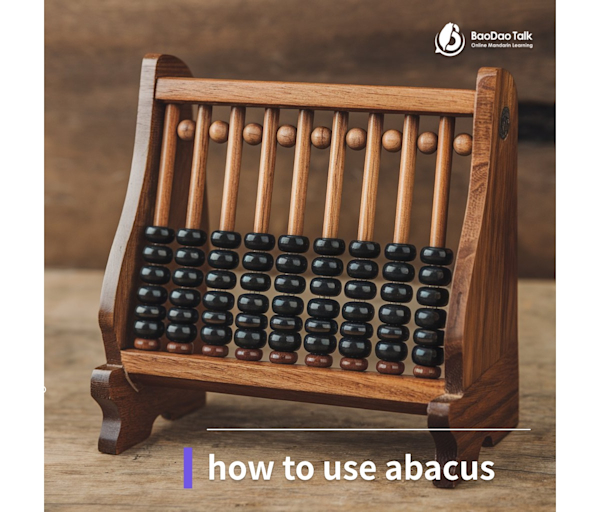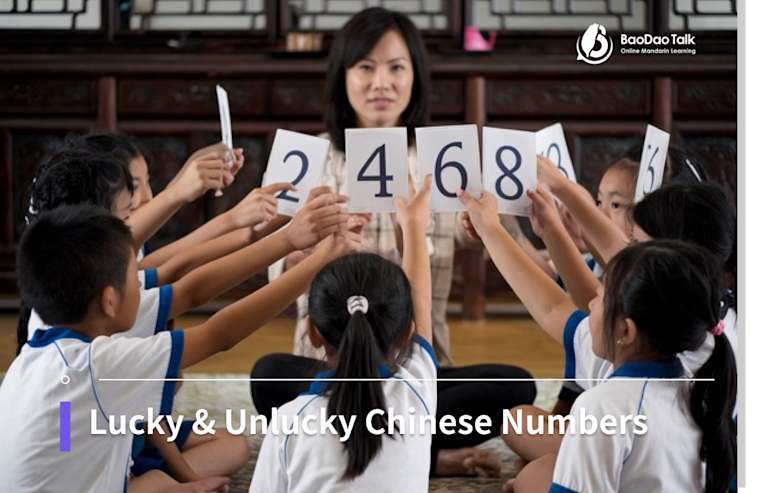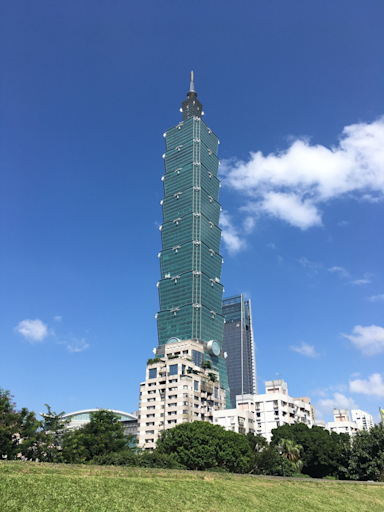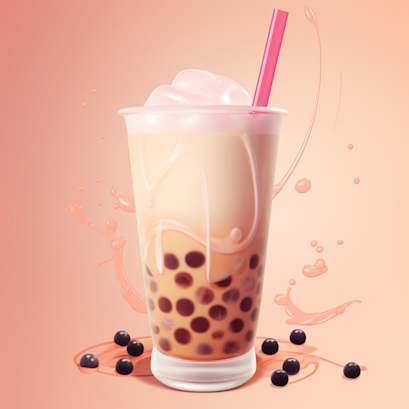BaoDao Talk Blog
2025-03-17updated
List of Chinese Festivals: 14 Festivals & Their Meaning
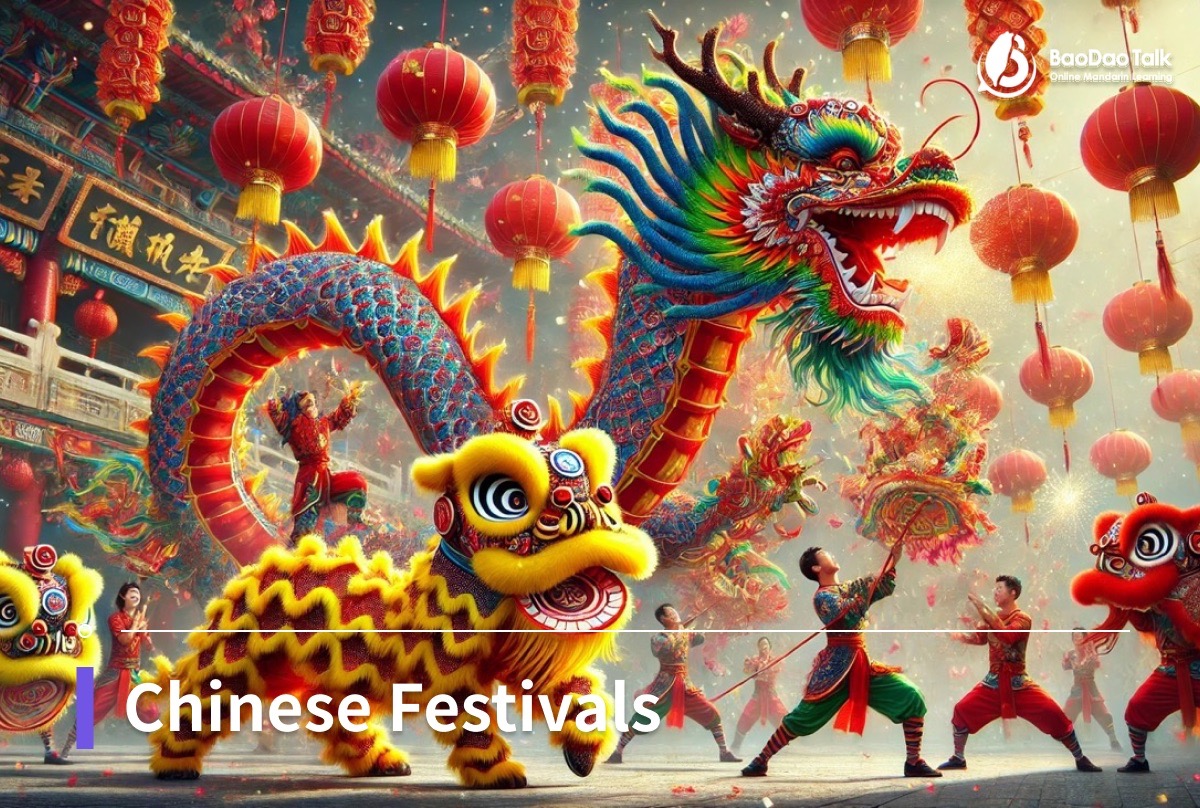
# Learning Mandarin
Discover 14 traditional Chinese festivals and traditions in this comprehensive list. Learn about the history, dates, and customs of popular Chinese festivals.
Quick Navigation
- The List of Chinese Festivals in 2025
- Lunar New Year
- Lantern Festival
- Tomb Sweeping Day
- Vesak Day/Buddha's Birthday
- Chinese Mother’s Day
- Dragon Boat Festival
- Summer Solstice
- Chinese Valentine's Day
- Hungry Ghost Festival
- Chinese Father's Day
- Mid-Autumn Festival/ Moon Festival
- Nine Emperor Gods Festival
- Double Ninth Festival
- Winter Solstice
- Frequently Asked Questions
- What are the major festivals celebrated in the Chinese-speaking World?
- How is the Chinese New Year celebrated and for how long does it last?
- Learn More About Chinese Culture at BaoDao Talk
As we explore the vibrant culture of China, one cannot overlook the significance of Chinese festivals. These festivals are an integral part of Chinese tradition and are celebrated with immense enthusiasm and fervor across the country. Each festival has its unique customs, traditions, and stories behind it, making it a fascinating subject to learn.
In this article, we will delve into the world of Chinese festivals. We will explore the most popular festivals celebrated across China, Taiwan, Hong Kong, Macau, and other Chinese communities in the world, along with their history, customs, and traditions. Let’s begin exploring our list of Chinese Festivals!
The List of Chinese Festivals in 2025
| Festival | Date in 2025 |
|---|---|
| Lunar New Year | January 29, 2025 |
| Lantern Festival | February 12, 2025 |
| Tomb Sweeping Day | April 5, 2025 |
| Vesak Day | May 12, 2025 |
| Chinese Mother's Day | May 11, 2025 |
| Dragon Boat Festival | May 31, 2025 |
| Summer Solstice | June 21, 2025 |
| Chinese Father's Day | August 8, 2025 |
| Chinese Valentine's Day | August 29, 2025 |
| Hungry Ghost Festival | September 6, 2025 |
| Mid-Autumn Festival | October 6, 2025 |
| Nine Emperor Gods Festival | October 21–29, 2025 |
| Double Ninth Festival | October 29, 2025 |
| Winter Solstice | December 21, 2025 |
Lunar New Year

2025: January 29, 2025
Lunar New Year, also known as Chinese New Year or the Spring Festival (春節, Chūn jié), is the most important traditional Chinese festival. It begins on the first day of the lunar calendar, usually falling between late January and mid-February, and lasts for 15 days. Each day carries unique customs and traditions, making it a time of joy, renewal, and family togetherness.
The Origin of Lunar New Year
The festival traces back to ancient China and the legend of Nian (年, Nián, meaning “year”), a fierce beast believed to attack villages on Lunar New Year’s Eve. To protect themselves, villagers discovered that Nian feared the color red, loud noises, and fire. They decorated their homes with red lanterns, pasted red couplets on doors, and set off firecrackers. The next day, everyone was safe and these customs became symbolic of driving away evil spirits and welcoming good luck, continuing as traditions today.
Customs of Lunar New Year
Lunar New Year wouldn’t be complete without the New Year's Eve reunion dinner, or Nián yè fàn (年夜飯). This isn’t just any meal—it’s the biggest feast of the year! It’s the time when families gather around the table, catching up, sharing laughter, and welcoming a fresh start together. But this dinner isn’t just about delicious food—every dish has a special meaning tied to luck, prosperity, and happiness.
- jiǎozi(餃子)– Dumplings: Its shape, like ancient Chinese gold, represents the promise of wealth and abundance!
- yú(魚)– Whole Fish: It symbolizes surplus and plenty since the word for "fish" sounds like "surplus" in Chinese!
- nian gao(年糕)– Sticky Rice Cake: This food literally means "year high," wishing you success and growth in the coming months.
- Chūn juǎn (春捲)– Spring Rolls: Their golden color reminds us of gold bars, hoping to bring you lots of good fortune!
And that’s not all! A whole chicken represents family togetherness, while a long plate of noodles stands for longevity and a long, happy life. This reunion dinner isn't just about the yummy food; it's a special time to bond with your loved ones, celebrate your family's traditions, and share blessings for a happy, harmonious new year filled with prosperity!
Lantern Festival

2025: February 12, 2025
The Lantern Festival is celebrated on the 15th day of the first lunar month. It marks the end of the Chinese New Year celebrations. Also known as Yuánxiāo jié (元宵節), it typically falls in February or early March. This festival is characterized by colorful lantern displays, traditional foods, and activities that bring families and communities together.
The Origin of the Lantern Festival
One legend explains that a hunter accidentally killed a divine bird, angering the Jade Emperor who planned to set fire to the human world on the 15th day of the first lunar month. The Jade Emperor's kind-hearted daughter warned people to hang lanterns and set off firecrackers on the 14th, 15th, and 16th to mimic the flames. Seeing the glowing lights, the Emperor believed the punishment had been carried out and spared humanity. This led to the tradition of hanging lanterns and lighting firecrackers each year.
Customs of the Lantern Festival
Get ready for a night of fun at the Lantern Festival! Marvel at the beautifully designed lanterns and try solving their riddles (猜燈謎). Savor Yuanxiao or Tangyuan (湯圓), those yummy rice balls symbolizing family unity. Watch captivating dragon and lion dances that chase away bad spirits!
If you're in Pingxi, New Taipei City, you're in for a treat! Watch hundreds of sky lanterns lighting up the night – each carrying hopes and dreams. It's truly a magical experience among all Chinese festival lists!
Tomb Sweeping Day
2025: April 5, 2025
Tomb Sweeping Day, also known as Qingming Festival or Chingming Festival (清明節, Qīngmíng jié), is a traditional Chinese festival that falls on April 4th or 5th each year. It is a time for people to pay respect to their ancestors by visiting their graves, sweeping and cleaning the tombs, and offering food and other items as a sign of filial piety.
The Origin of Tomb Sweeping Day
The origins of the Qingming Festival are linked to the story of Jie Zitui (介之推), a loyal servant to Duke Wen of Jin during the Spring and Autumn periods. Jie was known for his selflessness, even cutting flesh from his own leg to save Duke Wen during exile. Later, when the Duke became king, Jie refused rewards and retreated to the mountains. In an attempt to force him out, the Duke sets fire to the forest, accidentally killing Jie.
Overcome with guilt, the Duke declared a day of remembrance for Jie, which evolved into the Qingming Festival. The name "Qingming" (清明) means "clear and bright," signifying both the weather and the clarity of thought needed to honor ancestors.
Customs of Tomb Sweeping Day
One of the most meaningful customs of Tomb Sweeping Day is honoring ancestors by tending to their resting places. This is why it's often called "tomb sweeping"— it's about more than just cleaning; it's about showing respect and love. Families carefully clean the graves, then leave offerings—fragrant incense, symbolic paper money, and delicious treats like fresh fruit and rice. It is believed that your loved ones will receive these tokens of care in the afterlife. Through this act, families strengthen their connection to their past and show deep respect for their heritage.
But there's more to this day than just remembrance. There's also a fascinating custom of planting willow branches. According to tradition, ancestral spirits visit on this day—but so do wandering spirits. To keep these restless spirits at bay, people place willow branches around their homes, as it's believed that they’re afraid of these green guardians. It’s a meaningful way to honor the past while bringing peace and good fortune into the present.
Vesak Day/Buddha's Birthday

2025: May 12, 2025
Vesak Day, also known as Buddha's Birthday (佛誕日, Fó dàn rì), is a significant festival in Buddhism that commemorates the birth, enlightenment, and death of the Buddha. It is observed on the full-moon day of the lunar month Vesakha, which falls in April, May, or June in the Gregorian calendar. The festival is celebrated in many countries, especially in South and Southeast Asia, as well as Tibet and Mongolia. The day is observed as a public holiday in many of these countries.
The Origin of Vesak Day
This day marks the birth of the Buddha, approximately two and a half millennia ago in 623 B.C., and is also significant for two other crucial life events: his enlightenment and his passing at the age of eighty. These three defining moments in the Buddha’s life occurred that same day.
Recognizing Buddhism’s extensive 2,500-year contribution to global spirituality, the United Nations General Assembly formally acknowledged the Day of Vesak through resolution 54/115 in 1999. Since then, the day is annually commemorated at the UN headquarters and various other UN locations, in partnership with relevant UN bodies and permanent missions.
Customs of Vesak Day
During Vesak Day, Buddhists engage in various religious activities, such as visiting temples, offering alms to monks, and performing acts of kindness. Many also light candles and decorate their homes and temples with flowers and lanterns.
In Taiwan, the Vesak Festival is celebrated on the 15th day of the fourth lunar month. This day commemorates the ascension of Queen Maya, the mother of Buddha Shakyamuni, who ascended to heaven seven days after his birth. It is said that Shakyamuni manifested infinite light to bless his mother, and many celestial beings came to worship. The festival coincides with Mother's Day in Taiwan, prompting Buddhist groups to hold events honoring mothers.
Chinese Mother’s Day

2025: May 11, 2025
Chinese Mother’s Day is celebrated on the second Sunday of May, which is the same as the Western calendar. This festival honors the contributions and sacrifices of mothers, influenced by Western Mother's Day but incorporating Chinese traditions and values. It is widely celebrated across China and in Chinese communities worldwide, it is a secular holiday observed by people of all religions.
Customs of Chinese Mother's Day
On Chinese Mother’s Day, children show their love and gratitude with thoughtful gifts, beautiful flowers, and home-cooked meals. It’s a day filled with heartfelt gestures, where families come together to celebrate and appreciate the amazing mothers in their lives.
In addition to these modern ways of showing affection, some families also take a moment to honor the wisdom and devotion of ancient Chinese mother figures, such as Mencius's mother, who is famed for her unwavering guidance and sacrifice. It's a day to celebrate all the amazing mothers who have shaped our lives and filled our hearts with love.
Dragon Boat Festival

2025: May 31, 2025
The Dragon Boat Festival, also known as Duanwu Festival (端午節, Duānwǔ jié), is a traditional Chinese holiday celebrated on the fifth day of the fifth lunar month. This festival has a history of over 2,000 years and is one of the most important cultural events.
The Origin of the Dragon Boat Festival
The festival honors Qū Yuán (屈原), a patriotic poet and minister during the Warring States period. Qu Yuan is remembered for his unwavering loyalty to his state, Chu. When he was exiled due to political intrigue and learned that Chu had been conquered, he drowned himself in the Miluo River out of despair. The local people, who admired him, got in their boats to search for his remains and threw rice dumplings into the river to distract fish and prevent them from eating the body. This act became the origin of dragon boat racing and the tradition of eating zòngzi (粽子).
Customs of the Dragon Boat Festival
Zongzi (粽子) is an essential element of the Dragon Boat Festival! These yummy glutinous rice dumplings are wrapped in fragrant bamboo or reed leaves. Enjoy the sweetness of red bean paste and dates, or the savory goodness of pork, salted egg yolks, and mushrooms. Making zongzi together is also a special family tradition, a perfect way to bond and celebrate our heritage.
The dragon boat races are a heart-stopping, adrenaline-pumping highlight! Picture this: long, colorful boats, carved like fierce dragons, slicing through the water. The paddlers move as one, their oars dipping in perfect time to the booming drums. These races are a powerful way to honor Qu Yuan’s courage, spirit, and the importance of standing together.
Beyond the food and races, you’ll also find other fascinating customs. People hang bundles of wormwood and calamus leaves at their doors, believed to ward off evil spirits and wear fragrant perfume pouches filled with protective herbs. And let’s not forget the tradition of drinking realgar wine, which is thought to drive away disease and harm. It's a day to experience the full vibrancy of Chinese culture, celebrating tradition and community.
Summer Solstice

2025: June 21, 2025
The Summer Solstice (夏至, Xiàzhì) is a significant festival in ancient China, marking the beginning of summer and the longest day of the year in the Northern Hemisphere, with both astronomical and traditional importance.
The Origin of the Summer Solstice
The Summer Solstice, or Xiazhi, is the tenth of China's twenty-four solar terms. It is the longest day and the sun's highest point in the Northern Hemisphere. This day also signals the start of shorter days. The Summer Solstice occurs when the sun reaches a 90-degree ecliptic longitude.
In ancient China, it was a major holiday among the list of Chinese festivals, becoming prominent as early as the Han Dynasty (206 BC-220 AD). By the Ming Dynasty (1368-1644) it was marked by a day of rest, and Song Dynasty (960-1279) officials had a three-day holiday. Women of the Northern Song Dynasty (960-1127) exchanged fans to stay cool and sachets to repel mosquitoes.
Customs of the Summer Solstice
Though modern-day customs are few, the Summer Solstice has a rich past. Imagine officials enjoying three-day holidays during the Song and Qing Dynasties! They celebrated by eating seasonal wheat noodles to mark the harvest and bathing to cool down. These practices help us appreciate the heart of the Summer Solstice today.
Chinese Valentine's Day

2025: August 29, 2025
Chinese Valentine's Day, also known as Qīxì (七夕) or the Double Seventh Day, is a traditional Chinese festival celebrated on the seventh day of the seventh lunar month. This traditional festival celebrates love and romance, rooted in one of China’s most famous folktales. It is a day to honor love, express feelings, and wish for happiness in relationships.
The Origin of Chinese Valentine's Day
The festival’s origins are tied to the legend of Niulang (牛郎) and Zhinu (織女). Niulang, a kind-hearted cowherd, fell in love with Zhinu, a celestial weaver girl who was the daughter of a goddess. Defying the rules of heaven, they married and lived happily in the human world, but their union was forbidden.
When the goddess discovered their relationship, she was furious and separated them by creating the Milky Way. However, their deep love moved magpies, who formed a bridge across the Milky Way, allowing the couple to reunite once a year on the seventh day of the seventh lunar month. This tale of enduring love gives the festival its romantic essence.
Customs of Chinese Valentine's Day
On this special day, couples celebrate their love with romantic dates and thoughtful gifts, like sweet chocolates, beautiful flowers, or sparkling jewelry. Some couples even choose this day to get engaged or married, beginning their journey together on this auspicious occasion!
Young women also celebrate with a tradition: making dumplings together! As they prepare these savory treats, they add special surprises inside – a coin, a needle, and a red date – each carrying a special meaning. After praying for skills in weaving and sewing (乞巧, Qǐqiǎo), they enjoy the dumplings, hoping for good luck. Finding the coin means good fortune is coming your way, the needle promises great dexterity, and the date signals early marriage!
People also show their respect to Zhinu, the weaving goddess, and pray for good luck and happiness. And of course, no celebration is complete without food! One popular treat is Qiaoguo, a crispy fried pastry made with flour and honey, enjoyed for its sweetness and auspicious symbolism. It’s truly a festival filled with love, laughter, and the rich traditions of the long list of Chinese festivals!
Hungry Ghost Festival

2025: September 6, 2025
The Hungry Ghost Festival, also known as Zhōngyuán jié (中元節), is a traditional Chinese festival celebrated on the 15th day of the seventh lunar month. This festival dates back to the Han Dynasty and is believed to have originated from Taoist and Buddhist beliefs.
The Origin of Hungry Ghost Festival
The festival’s origins are tied to the story of Mulian (目連), a Buddhist monk who sought to save his mother from suffering in the realm of hungry ghosts. In the story, Mulian’s mother was sent to this realm as punishment for her bad actions toward Mulian in the preexistence. The mother was very hungry because any food she tried to eat turned to fire in the realm.
Mulian asked the Buddha for help, and the Buddha told him to offer food and perform special rituals to ease her suffering. The Buddha also taught people to make offerings to their ancestors and wandering spirits on the 15th day of the seventh lunar month. This practice became the basis of the Hungry Ghost Festival.
Customs of Hungry Ghost Festival
During the month-long Hungry Ghost Festival, the boundary between worlds fades, allowing spirits of the departed to visit the living. People welcome them with offerings of food, incense, and ghost money, hoping to appease them and prevent mischief. This tradition beautifully connects the living with their ancestors.
A unique and fascinating practice during the Hungry Ghost Festival is the burning of joss paper, often called "ghost money." This paper is considered currency for use in the afterlife, providing comfort and resources for those who have passed on. You’ll also see traditional Chinese opera and other vibrant forms of entertainment being performed, all to please and honor the visiting spirits.
In Taiwan, the Ghost Festival takes on a particularly captivating and spectacular form, with two main customs: the release of floating lanterns and the thrilling pole-climbing competitions. The floating lanterns (放水燈, Fàng shuǐ dēng), with names and addresses lovingly written on them, are set adrift on rivers or the sea, guiding wandering spirits as they seek their way home. And then there’s the daring pole-climbing competition (搶孤, Qiǎng gū), where participants climb tall bamboo poles to retrieve offerings, showcasing courage and symbolizing a way to scare away evil spirits.
Chinese Father's Day

2025: August 8, 2025
In Taiwan, Father's Day is celebrated on August 8th each year because the pronunciation of "eight eight" (八八, bābā) is similar to "papa" in Mandarin. Additionally, when the characters for "eight" are put together, they resemble the character for "father" (父, fù). Therefore, August 8th is designated as Father's Day and is also known as "Bābā jié" (爸爸節).
In the People's Republic of China, there is no official Father's Day. However, some people celebrate it on the third Sunday of June, following the tradition of the United States. In the special administrative regions of Hong Kong and Macau, Father's Day is also celebrated on the third Sunday of June, but it is not a public holiday.
Mid-Autumn Festival/ Moon Festival

2025: October 6, 2025
The Mid-Autumn Festival, also known as the Moon Festival or Zhōngqiū jié (中秋節), is a traditional Chinese festival celebrated on the 15th day of the 8th lunar month, typically in September or early October. This festival is an important cultural event for Chinese people worldwide. It marks the harvest and honors the full moon, a symbol of unity and completeness in Chinese tradition.
The Origin of Mid-Autumn Festival
The Moon Festival is also deeply connected to the legendary tale of Chang’e (嫦娥), the moon goddess. In the most well-known version of the story, Chang'e was the wife of Hou Yi(后羿), a heroic archer who saved the world by shooting down nine of the ten scorching suns. As a reward, he received an elixir of immortality. Out of love for her husband, Chang'e safeguarded the elixir but did not consume it.
However, when a greedy apprentice tried to steal it, Chang'e drank the magical potion to prevent it from falling into the wrong hands. She ascended to the moon, where she remained forever, separated from Hou Yi. Her story is commemorated during the festival, symbolizing love, sacrifice, and longing. The Chinese idiom "嫦娥奔月" (Cháng'é bēn yuè), meaning "Chang'e flies to the moon," originates from this tale and is often used to describe daring aspirations or celestial beauty, enriching the cultural significance of the festival.
Customs of Mid-Autumn Festival
The Mid-Autumn Festival is a cherished time for families and friends to come together, and mooncakes make it even sweeter! These round Chinese pastries symbolize unity, just like the full moon they resemble. Each bite reveals delightful fillings like smooth bean paste, fragrant lotus seed paste, or a tasty mix of nuts, fruits, and savory meats. Sharing a mooncake is a wonderful way to spread happiness and connection with everyone you love!
In Taiwan, the Mid-Autumn Festival isn’t just about mooncakes—it’s also about barbecue! Thanks to catchy TV ads in the 80s, barbecuing became a must-do activity for the Moon Festival. It's a fun tradition that brings families together in a lively atmosphere. Every year, families eagerly fire up their grills, adding to the excitement and festive spirit of the holiday!
Nine Emperor Gods Festival

2025: October 21-29, 2025
The Nine Emperor Gods Festival (九皇爺誕, Jiǔ Huángyé dàn) is a nine-day Taoist celebration that takes place in Southeast Asian countries such as Malaysia, Singapore, Indonesia, and Thailand. It begins on the eve of the ninth lunar month of the Chinese calendar. The festival primarily celebrates the birthdays of the Nine Emperor Gods, who are believed to have control over the affairs of life and death.
The Origin of Nine Emperor Gods Festival
The Nine Emperor Gods, or Jiu Huang Ye, have multiple origin stories. One belief is that they are reincarnated Nine Human Sovereigns, born from the goddess Dou Mu. After enlightenment, Dou Mu shared her wisdom, and her sons became Beidou Jiuxing, the Northern Dipper. Dou Mu, as the mother of this group, is known as the Dou Mu Tianzun. She and her spouse manage the North Pole, around which her nine sons orbit.
Taoists believe the Northern Dipper controls fate and national welfare. The north also represents water, life, and death, and Dou Mu protects seafarers. Another idea is that they represent Lu Wang, a Ming dynasty prince honored for resisting the Qing dynasty. A Singaporean story connects the festival to a flood in Fujian where the gods warned people. It is thought that the worship began in Fujian, and scrolls of the gods brought to Penang by Lin Yin are now in a temple in Kuala Lumpur.
Customs of Nine Emperor Gods Festival
During the Nine Emperor Gods Festival, devotees show their faith with heartfelt rituals. They burn incense, offer prayers, and some participate in moving processions with acts of body piercing, showing their deep commitment.
A key part of the festival is the grand procession of the Nine Emperor Gods on the ninth day. Devotees carry a statue through the streets, accompanied by traditional music and dance, showing their faith and community spirit.
Food is also important. Devotees prepare and enjoy delicious vegetarian dishes, believed to purify the body and soul. Many in the Malaysian Chinese community observe a nine-day vegetarian diet, as part of their dedication to the festival.
Double Ninth Festival

2025: October 29, 2025
The Double Ninth Festival, also known as the Chóngyáng jié (重陽節), is a traditional Chinese holiday celebrated on the ninth day of the ninth lunar month. The festival is considered an important day for seniors, and it is also known as Senior's Day.
The Origin of Double Ninth Festival
Historically, the festival dates back over 2,000 years, with its origins linked to ancient Chinese Taoism and the worship of the star Antares. Over time, it evolved into a day for honoring ancestors and promoting health and longevity. Nine is believed to be a yang number in Chinese cosmology, and the ninth day of the ninth month has extra yang energy. Nine is considered a lucky number in Chinese culture.
Customs of the Double Ninth Festival
One of the most popular customs is climbing mountains or high places, a practice believed to ward off danger and invite good fortune. It's no wonder the festival is sometimes called the "Height Ascending Festival!" You'll also see beautiful chrysanthemums in full bloom; these special flowers symbolize longevity and are greatly appreciated during this time.
And when it comes to food, the festival has some delicious treats! Try Chongyang cake, a multi-layered rice cake, often decorated with tasty nuts and sweet jujubes. This cake is extra special since the word for "cake" (糕, gāo) sounds just like the word for "height" (高, gāo), symbolizing progress and the desire to achieve great things! The traditions also include drinking chrysanthemum wine, which is thought to have cleansing properties that will promote good health.
In Hong Kong, kite flying is a beloved custom during the festival. With roots stretching back to the Han Dynasty, people send their kites soaring from all sorts of places – treetops, rooftops, hillsides, and riverbanks, all with the hope of attracting good luck and health. As the kites fly high, people send prayers for their safety and well-being, reaching out to the skies with hope for fortune and good health.
Winter Solstice

2025: December 21, 2025 (Sunday)
The Winter Solstice Festival, also known as the Dongzhì (冬至), is a traditional Chinese festival celebrated during the Dongzhi solar term, which falls between December 21 and December 23. The origins of this festival can be traced back to the yin and yang philosophy of balance and harmony in the cosmos.
The Origin of the Winter Solstice Festival
The Winter Solstice, or Dongzhi, began in China during the Han Dynasty (206 BC – 220 AD). Legend says a sage, Zhou Feng, first identified it using a sundial. Though originating in the Han Dynasty, it grew during the Tang (618 – 907 AD) and Song Dynasties (960 – 1279 AD), where officials had a seven-day holiday to celebrate with their families, worship heaven, and honor their ancestors. It was a time for families to unite and honor the year's cycle and their heritage.
Customs of the Winter Solstice Festival
The Winter Solstice Festival is made with tangyuan! These chewy, delightful rice balls symbolize the increasing daylight hours and the return of positive yang energy, bringing a feeling of hope and renewal. It's even said that "eating tangyuan adds a year to your life," a fun reminder that with each delicious bite, we're celebrating another year of life's journey!
Beyond the joy of food, there's also the tradition of offering sacrifices. As early as the Zhou Dynasty, the emperor would hold a grand ceremony to worship the gods on this day. Today, families set up altars with symbolic offerings such as tangyuan, fresh fruits, and three types of sacrificial animals, honoring deities and ancestors. It's a heartfelt way to express gratitude for all of the blessings received during the past year, and to send wishes for protection and support in the coming year. It's a time for reflection and for looking forward with hope.
Frequently Asked Questions
What are the major festivals celebrated in the Chinese-speaking World?
The Chinese community has several important festivals that are celebrated throughout the year. The Lunar New Year, also known as the Spring Festival, is the most important and widely celebrated festival around the world. Other major festivals include the Lantern Festival, Tomb Sweeping Day, and the Dragon Boat Festival.
How is the Chinese New Year celebrated and for how long does it last?
The Chinese New Year is celebrated with family reunions, feasts, fireworks, and the exchange of red envelopes filled with money. Traditionally, the celebrations last for 15 days, starting on the first day of the lunar calendar.
Learn More About Chinese Culture at BaoDao Talk
Chinese culture is incredibly rich and diverse, spanning communities in Taiwan, Hong Kong, Macau, and the Southeast Asia region. It encompasses unique customs, traditions, cuisine, and values that emphasize family, respect, and education.
BaoDao Talk is an online platform offering immersive learning experiences to help you dive into Taiwanese culture and learn Mandarin. Whether you're curious about how to count from 1 to 10 in Mandarin, the origins of Chinese numbers, or want to explore the fascinating connections between numbers, hand signals, and feng shui for house placements, BaoDao Talk provides personalized and structured learning plans. With experienced teachers and interactive lessons, we make learning about these cultural intricacies engaging and accessible.
Start your journey with BaoDao Talk today and deepen your understanding of Mandarin and Chinese culture while uncovering the fascinating stories behind numbers and their impact!
Share to:
